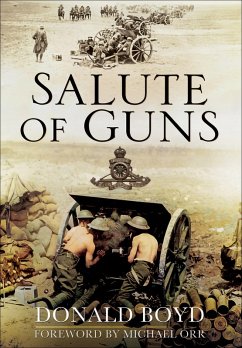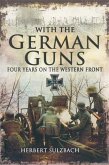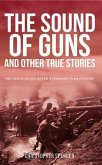Artillery was the decisive weapon of the Great War but its story is almost forgotten. The developments in artillery tactics, equipment and shells played a major role in the final Allied victory. British artillery was in the forefront of all those changes. This book gives the reader a dramatic insight into the story of artillery in the First World War. Donald Boyd joined his local Territorial Force artillery unit in September 1914. Commissioned in 1915, he learnt his trade in France from unsympathetic pre-war Indian Army regulars who did not understand how war was changing. From 1916 to 1918, he took part in the Western Fronts major battles, including the Somme, Third Ypres, Cambrai and the 1918 offensives. The stress of an artillery subalterns existence, observing in the front line, keeping the guns in action at a battery position or leading ammunition columns up tracks exposed to shellfire brought him to nervous collapse twice. The author is frank about his problems and convincingly conveys the relationships within his sub-unit, which helped or hindered his struggle to stay in the front line.A new Foreword by Michael Orr sets Boyds memoir in context and documents its reliability from the archives.If I had to name the best record of Western Front fighting I should, on the whole, choose Donald Boyds Salute of Guns as the one that has dealt most faithfully with the most difficult to recall of all its aspects contemporary morale. (Robert Graves)
Dieser Download kann aus rechtlichen Gründen nur mit Rechnungsadresse in A, B, BG, CY, CZ, D, DK, EW, E, FIN, F, GR, HR, H, IRL, I, LT, L, LR, M, NL, PL, P, R, S, SLO, SK ausgeliefert werden.









